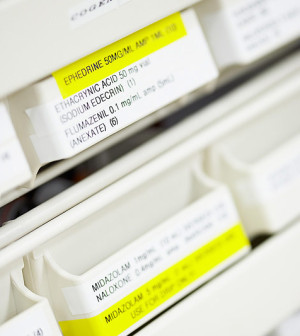- 8 Ways to Increase Dopamine Naturally
- 7 Best Breads for Maintaining Stable Blood Sugar
- Gelatin vs. Collagen: Which is Best for Skin, Nails, and Joints?
- The Long-Term Effects of Daily Turmeric Supplements on Liver Health
- Could Your Grocery Store Meat Be Causing Recurring UTIs?
- Are You Making This Expensive Thermostat Error This Winter?
- Recognizing the Signs of Hypothyroidism
- 10 Strategies to Overcome Insomnia
- Could Artificial Sweeteners Be Aging the Brain Faster?
- Techniques for Soothing Your Nervous System
Adempas Approved to Treat Pulmonary Hypertension


WEDNESDAY, Oct. 9Adempas (riociguat) has been approved by the U.S. Food and Drug Administration to treat two types of pulmonary hypertension, characterized by high blood pressure in the arteries of the lungs.
The chronic, disabling disease forces the heart to work harder than usual, and can lead to death or the need for a lung transplant, the FDA said in a news release.
Adempas, among a class of drugs called soluble guanylate cyclase stimulators, relaxes the arteries. This increases blood flow and eases blood pressure, the agency said.
The drug was approved for people with chronic thromboembolic pulmonary hypertension (CTEPH) after surgery, or for people who cannot have surgery, to help improve the ability to exercise. The drug also was approved for people with pulmonary arterial hypertension (PAH) of various causes.
Adempas was evaluated in a clinical study involving 261 people with CTEPH. People who were treated with the drug were able to walk about 150 feet further in six minutes after 16 weeks of treatment than people who took a placebo, the FDA said.
In another trial of 443 people with PAH, people treated with the drug were able to walk about 118 feet further in six minutes than those who had been treated with a placebo.
The most common side effects of the drug included headache, dizziness, indigestion, tissue swelling, nausea and vomiting.
Adempas’ label includes a boxed warning that pregnant women shouldn’t use the drug, which can harm a growing fetus, the agency said.
The drug is marketed by Wayne, N.J.-based Bayer HealthCare Pharmaceuticals.
More information
The FDA has more about this approval.
Source: HealthDay
Copyright © 2026 HealthDay. All rights reserved.










